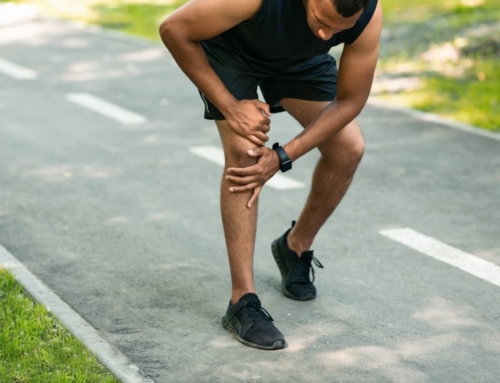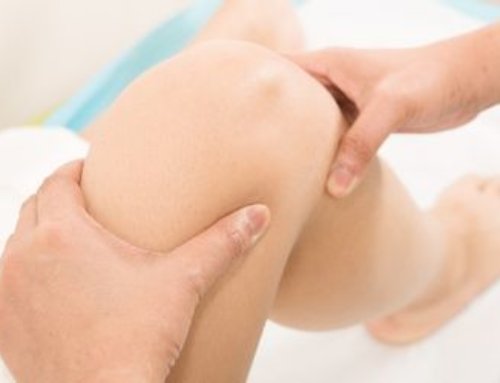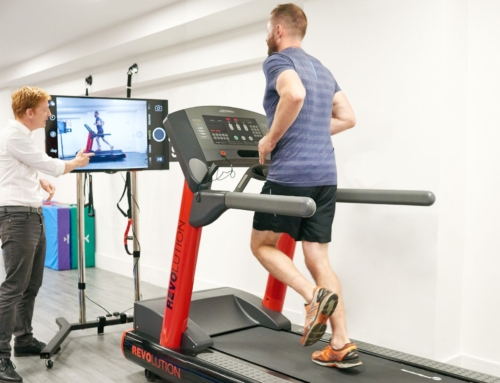What is Urinary incontinence?
Urinary incontinence is the involuntary leaking of urine. It is a common, and often embarrassing problem with 1 in 3 women suffering from it. It is also something that we rarely speak about.
Only 1 in 5 women currently seek help for issues with urinary incontinence. This is partly because we think it is inevitable after childbirth, and partly due to embarrassment about talking about it.
However, the cost to the NHS in 2000 was £233 million with a further £178 million borne by those who self-funded treatment!
The great news is physiotherapy is seen as the first line treatment for this and can make a significant change to your symptoms.
Hopefully, in this blog, we can provide you with more information on urinary incontinence to help change the stigma surrounding it and make you feel confident about how to improve your symptoms and when to seek help and guidance.
What are the different types of urinary incontinence?
There are a number of different types of urinary incontinence.
1. Stress urinary incontinence
This is the most common type of urinary incontinence.
It is the leaking of urine when your bladder is put under sudden pressure. This could be when you cough, laugh or sneeze. It can also be when you lift something heavy or caused by impact such as walking, running or jumping. The amount of leakage can range from a few drops to complete emptying of the bladder.
2. Urge urinary incontinence
This is when you leak urine after feeling a sudden desire to wee, which you cannot put off. This can often happen on the way to the toilet or when you put the key in the front door.
3. Overflow incontinence
This is when you experience frequent, or constant, dribbling of urine when you are unable to completely empty your bladder.
4. Overactive bladder
This is when you suffer from urgency, increased daytime and night-time frequency, and can occur with or without urge incontinence. It may be called ‘OAB wet’ or ‘OAB dry’, depending on whether or not the urgency is associated with incontinence. This affects 1 in 5 of women over the age of 40.
5. Mixed urinary incontinence
This is the involuntary leakage of urine associated with both stress and urge urinary incontinence.
What causes urinary incontinence?
Urinary incontinence can be caused by everyday habits, pain, underlying medical conditions or physical problems. An assessment by a pelvic health physio can help determine what is causing your incontinence and what the best treatment is.
There are a number of factors that can increase your risk of developing urinary incontinence and include:
Your gender
Women are more likely to have stress incontinence. Pregnancy, childbirth, menopause and normal female anatomy account for this difference. After giving birth, one in three women suffer from urinary incontinence so it is very common!
Unfortunately, we cannot change our anatomy or hormone make-up. However, this doesn’t mean that we can’t help to change the symptoms!
Your age
As we get older, the muscles in your bladder and urethra lose some of their strength. Changes with age reduce how much your bladder can hold and increase the chances of involuntary urine release. This is often why we get up to go to the toilet at night!
However, it is important to note that urinary incontinence is not an inevitable consequence of aging!
Being overweight
Increases in body weight can increase the downward pressure on your bladder, surrounding supportive structures and pelvic floor. This in turn can weaken them and lead to leaking of urine.
Discussing changes to your weight with your pelvic health physio about this is key as small lifestyle changes can make all the difference!
Being constipated
The rectum is located near the bladder and shares many of the same nerves. When it is full, it also presses on the bladder and can cause a feeling of urgency.
Chronic constipation and straining when going to the toilet can lead to increased downward pressure on the pelvic floor and weakening of the muscles around it.
Smoking
Tobacco use may increase your risk of urinary incontinence. It can also often cause you to cough more frequently which again, causes a sudden downward pressure on the pelvic floor and can cause it to weaken over time.
Family history
Your chances of developing urinary incontinence, in particular urge incontinence, is higher if a close family member has also suffered from this.
Other medical conditions
Neurological diseases such as Parkinson’s or Multiple sclerosis, as well as diabetes may increase your risk of incontinence. Urinary tract infections can irritate your bladder, causing you to have strong urges to go for a wee, sometimes leading to leaking.
There are also certain foods and drinks that can irritate the bladder and cause you to need to go for a wee more frequently. These include:
- Caffeine
- Fizzy drinks
- Fresh fruit juice and citrus based drinks
- Alcohol
- Drinks containing artificial sweeteners
- Chilli
- Citrus fruit
What can you do for urinary incontinence?
We understand that some things, like family history cannot be changed. However, there are a lot of things in the list above which can be!
It is important to remember that everyone is different, and your treatment will depend on you and your symptoms.
If you suffer from urinary incontinence it does not mean you will need to take medication or have surgery. Even some simple lifestyle changes can make the world of difference to your symptoms including:
- Reducing the amount of caffeine you drink or swapping to decaffeinated options. This helps as caffeine increases the amount of urine your body produces. Remember, it is not only found in tea and coffee! (there are also high amounts of caffeine in alcohol and cola).
- Aiming to drink around 1.5- 2L of fluid a day. Both drinking too much as well as too little can make your symptoms worse. Remember that if you are very active, have been exercising, or it is very hot, this may need to be slightly more so use this as a guide.
- Maintaining a healthy body weight. Looking at how you can adjust your diet and exercise plan in order to loose excess weight.
- Stop smoking! There are lots of support groups and services available to help you with this.
- Avoid constipation and straining. Using the ‘Squatty Potty’ position can really help. Simply lifting your feet on a small step can help you get more comfortable and encourage freedom of movement!

And a final quick tip for managing stress urinary incontinence …
If you think you are going to cough, laugh, sneeze (sometimes hard to pre-empt I know!) or lift something heavy, then try to engage your pelvic floor just before you do so. This is known as ‘the knack’. It can provide immediate improvement in your symptoms so have a go!
What should you do next?
If you suffer from symptoms of urinary incontinence the first line of treatment is Physiotherapy.
At Complete Physio, we advise that you book in to see a specialist pelvic health physiotherapist who can complete a full assessment. They will be able to review your symptoms and address all the factors that may be causing them. Your clinician will complete a thorough assessment of you, how you are moving and functioning as well as completing a vaginal, or internal examination with consent. These steps ensure that they can then provide detailed advice, education and support with the aim of guiding you back to your normal daily activities and exercise.
Your clinician will then help to ensure that you are activating your pelvic floor muscles in the right way and working to improve their strength and co-ordination. Holding everything up and in is often not the answer as we need our pelvic floor to expand as well as contract! They can also help you to make adaptations to your lifestyle to help you manage independently in the future.
On the off chance that adequate improvements to your symptoms are not made with physiotherapy, they can also discuss other management strategies and offer support with this as well as helping in the decision-making process surrounding alternative treatments and how to access them.
Simply get in touch with us or book an appointment to see how we can help you.
Don’t let pain hold you back, book now!






